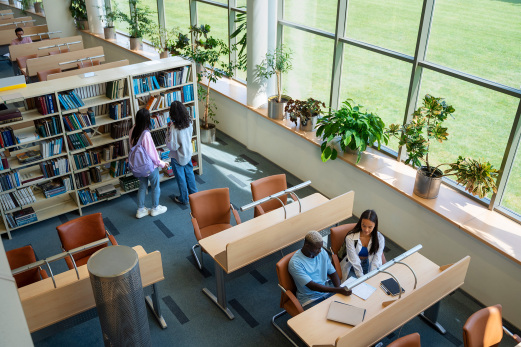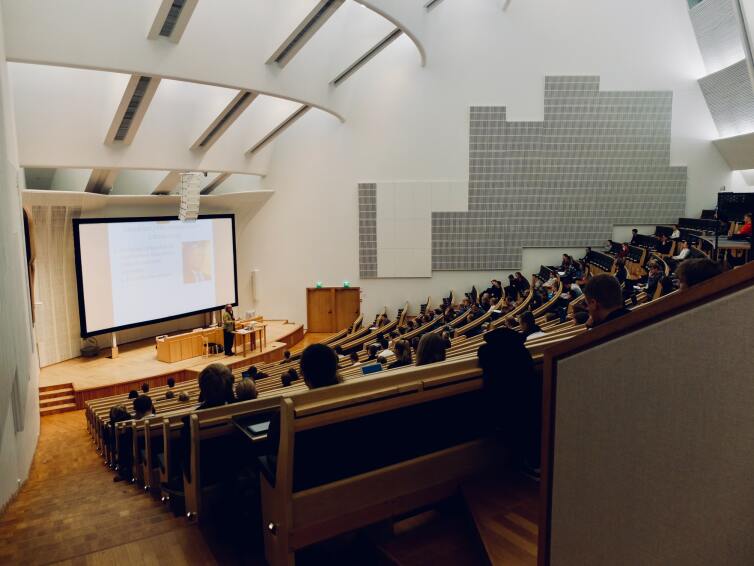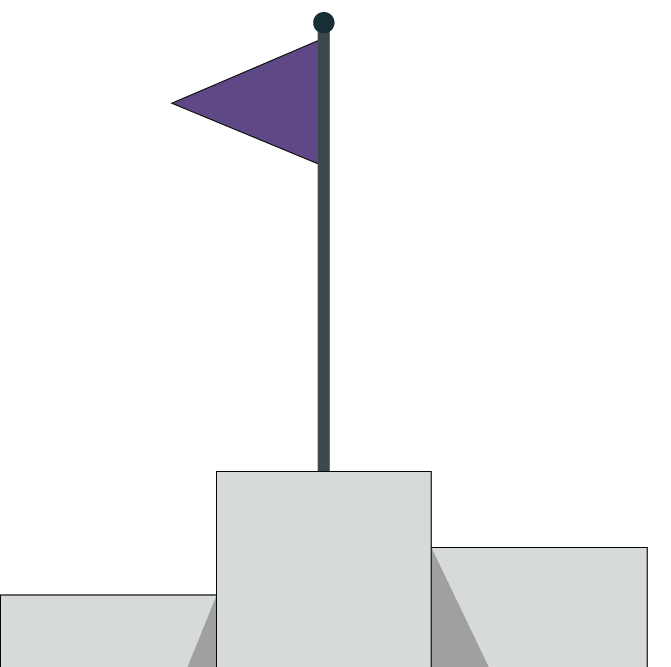
Australian Study Visa
Subclass 500
Your Gateway to High-Quality Education and a World of Opportunities
Australia is a land of opportunity, renowned for its stunning natural beauty, friendly people, and world-class education system. Whether you're seeking to broaden your horizons, improve your language skills, or gain new professional qualifications, studying in Australia can be the key to unlocking a wealth of possibilities. But before you can embark on this exciting journey, you'll need to secure an Australian study visa. In this article, we'll explore everything you need to know about the Australian study visa, from the application process to the benefits it can offer.

Benefits of an Australian study visa
- Access to world-class education: Australia has a reputation for providing high-quality education with a range of courses and degrees to choose from. Studying in Australia can help you gain skills and knowledge that can enhance your career prospects.
- Opportunity to work while studying: International students on a student visa are allowed to work part-time (up to 40 hours per fortnight) during their studies, which can help them gain valuable work experience and supplement their income.
- Possibility of post-study work: Many international students who complete their studies in Australia are eligible for a post-study work visa, which allows them to work in Australia for up to four years after their studies.
- Exposure to diverse cultures: Studying in Australia provides an opportunity to interact with people from different cultures and backgrounds, which can broaden your perspective and enrich your overall learning experience.
- Health and safety benefits: Australia has a high standard of healthcare and safety, which can provide peace of mind to international students and their families.
- Pathway to permanent residency: For many international students, studying in Australia can be a pathway to permanent residency, as they may be eligible to apply for various skilled migration visas.

Students and international students who wish to study full-time at a registered educational institution in Australia can apply for a student visa (subclass 500). Depending on the length of your course of study, this visa allows you to legally study in Australia for up to five years.
Under this visa, students under the age of 18 may study in Australian schools; students over the age of 18 may continue their studies in Australian universities after obtaining a diploma or higher degree. The following sections will examine the conditions and steps for each of these options.
Australian study visa - subclass 500
Australia's exceptional education system draws in a multitude of international students annually.
With its renowned universities, pleasant surroundings, and rich cultural experiences, Australia has become a favored destination for pursuing higher education. Nevertheless, the process of obtaining a student visa can seem overwhelming.
In the following article, we will delve into all the essential details regarding studying in Australia and guide you through the process of obtaining a student visa
Australia study visa-
For university students


Australia study visa-
For students under 18 years old
Commencing higher education is a significant milestone, and pursuing it overseas can be an even greater leap, particularly for those who are under 18 years old.
In Australia, the age of maturity is 18, which designates individuals below this age as minors. If you fall under this age category, it is important to note that there are specific considerations to be mindful of when applying for a study visa, and the applicable regulations may differ from those for individuals who are over 18 years old.
To assist with this, we have curated a comprehensive guide for students who are under 18 years old.
A comprehensive guide to Studying in Australian University
This article will cover the following topics:
Studying in Australian University

Top 5 Universities in Australia
Australia is home to many leading universities that provide excellent education and research opportunities to students. Here are some of the most important universities in Australia:
The University of Melbourne
The University of Melbourne is the highest-ranked university in Australia, known for its academic excellence and research-intensive environment. Founded in 1853, it offers undergraduate and postgraduate degrees in various fields, including business, law, engineering, medicine, and arts. The University of Melbourne is also a member of the prestigious Group of Eight universities in Australia, a coalition of the country's top research universities.
The Australian National University
The Australian National University (ANU) is a world-renowned university located in Canberra, Australia's capital city. It is ranked as the second-best university in Australia and offers a range of undergraduate and postgraduate programs in science, humanities, and social sciences. The ANU is also known for its research capabilities and is home to the Australian National Centre for the Public Awareness of Science, the Australian Centre for the Study of Armed Conflict and Society, and the Asia-Pacific College of Diplomacy.
The University of Sydney
The University of Sydney is one of the oldest and most prestigious universities in Australia, offering undergraduate and postgraduate programs in science, medicine, arts, and law. It is a member of the Group of Eight universities and is ranked third in the country. The University of Sydney is also known for its research facilities and has produced numerous Nobel laureates and other eminent scholars.
The University of Queensland
The University of Queensland (UQ) is a leading research university located in Brisbane, offering a range of undergraduate and postgraduate programs in science, engineering, business, and law. UQ is a member of the Group of Eight universities and is ranked fourth in the country. The university is known for its research capabilities and has contributed significantly to the development of the Gardasil vaccine, which prevents
cervical cancer.
Monash University
Monash University is a public research university located in Melbourne, offering undergraduate and postgraduate programs in science, engineering, business, and humanities. It is the largest university in Australia and a member of the Group of Eight universities. Monash University is also known for its research facilities and has produced numerous notable alumni, including Nobel laureates and Olympic medalists.
In Australia, universities typically have two semesters in an academic year, with each semester lasting for around 13-14 weeks. The academic year usually begins in late February or early March and ends in November or December, depending on the university.
Between semesters, universities have breaks called "terms" or "holidays". The specific dates for these breaks can vary from university to university, but generally, universities have four terms/holidays in a year:
Summer Term/Holiday: This term/holiday usually starts in mid-December and ends late February. It is the most extended break of the academic year and covers the Christmas and New Year holidays.
Autumn Term/Holiday: This term/holiday typically runs from late April to early June, and it is also known as the Easter Break.
Winter Term/Holiday: This term/holiday generally starts in late June and lasts until mid-July. It is a short break of around two to three weeks, depending on the university.
Spring Term/Holiday: This term/holiday usually runs from late September to early October, and it is a mid-semester break for students.
It is important to note that the dates for terms and holidays can vary depending on the university and the specific course of study. It is always recommended to check your university's academic calendar to confirm the dates of terms and holidays.
The cost of studying at a university in Australia varies depending on various factors, such as the course of study, level of degree, and the university itself. Here are some of the costs associated with studying at a university in Australia:
Tuition Fees: Tuition fees in Australia vary based on the course of study and the university. For example, the average annual tuition fees for an undergraduate course in Australia ranges from AUD 20,000 to AUD 45,000, while for a postgraduate course, the fees range from AUD 22,000 to AUD 50,000.
Accommodation: The cost of accommodation can vary depending on the type of accommodation and the location. On-campus accommodation is usually more expensive than off-campus housing options. In general, students can expect to pay between AUD 150 to AUD 350 per week for off-campus accommodation.
Living Expenses: The cost of living in Australia can vary depending on the location and lifestyle. On average, students can expect to spend between AUD 20,000 to AUD 25,000 per year on living expenses such as food, transportation, and entertainment.
Textbooks and Course Materials: Students will also need to budget for textbooks and other course materials. The cost of textbooks can vary depending on the course and the university, but students can expect to spend around AUD 1,000 per year on textbooks.
Health Insurance: International students are required to have health insurance in Australia. The cost of health insurance varies depending on the insurance provider and the level of coverage required. On average, international students can expect to pay around AUD 600 to AUD 800 per year for health insurance.
It is important to note that the above costs are estimates, and the actual costs may vary depending on the university, course of study, and location. It is recommended that students research the specific costs associated with their chosen course and university before making any decisions.
Student visa applicant conditions
Who is eligible for an Australian student visa?
English language
For this visa category, the minimum language proficiency level that is acceptable is equivalent to IELTS 6.
Age
To avail of an Australian student visa, you need to be at least 18 years of age. There is no maximum age limit for student visas in Australia

Enough Money
It is necessary to provide a certificate of financial capability from the legal guardian to demonstrate their ability to cover all the expenses associated with the student's education.
Be Enrolled
It is crucial to provide proof of enrollment in your course of study along with your student visa application; otherwise, your application will not be considered valid, and it will not be processed.
Health Insurance
You must be covered by Overseas Student Health Cover (OSHC)
Student Visa Application Process-Subclass 500

Step 1
Seek Professional Assistance
Get professional advice on your eligibility to study in Australia Read more for free advice.

Step 2
Choosing the city and state
Choosing the city and state according to your desired degree and field is an important step in continuing your education in Australia. Please refer to the following information for a city selection guide.

Step 3
Register for Course
It is important that you choose a course in the Commonwealth Register of Institutions and Courses for Overseas Students (CRICOS) you can see web site in the Read More

Step 4
Paying for insurance and registering for a visa
At this stage, you should prepare the payment of the OSHC insurance policy and apply for a visa through your lawyer after preparing and completing the requested documents.

Step 5
Respond to any RFI requests by the Immigration
When the Department of Home Affairs assesses your visa application, A biometric test letter will be sent to you and they may send you a number of RFIs (Requests for Further Information) to ask for more information for verification.

Step 6
Grant Visa sub 500
You and your family migrate to Australia after receiving your visa approval
Student Visa Processing times
Visa issuance is dependent on many factors, so the exact time of Australian visa issuance cannot be predicted, but according to Immigration Department statistics:
75%
Australian Student visa Applications
Processed within 6 Months
90 %
Processed within 9 Months
Australian Student visa Applications
There are three main costs associated with this visa
Australian Student Visa
Costs
Australian Immigration Fees
2022-23
Main applicant AUD$ 650
+18 Dependent AUD$ 485
-18 Dependent AUD$ 180

After Millennium Migration reviews your information, we will first register you at the institution of your choice, which is chosen by our team.
Your visa application will then be sent to the Australian government after receiving the confirmation code and registering in a legal institution in Australia.
You will undergo biometric and medical tests after the Australian government reviews your application, and finally, after confirming the documents and performing the tests, you will receive your visa.
If you would like to learn more about the procedures for obtaining a student visa (Subclass 500), send your request for a free consultation through the link below.
